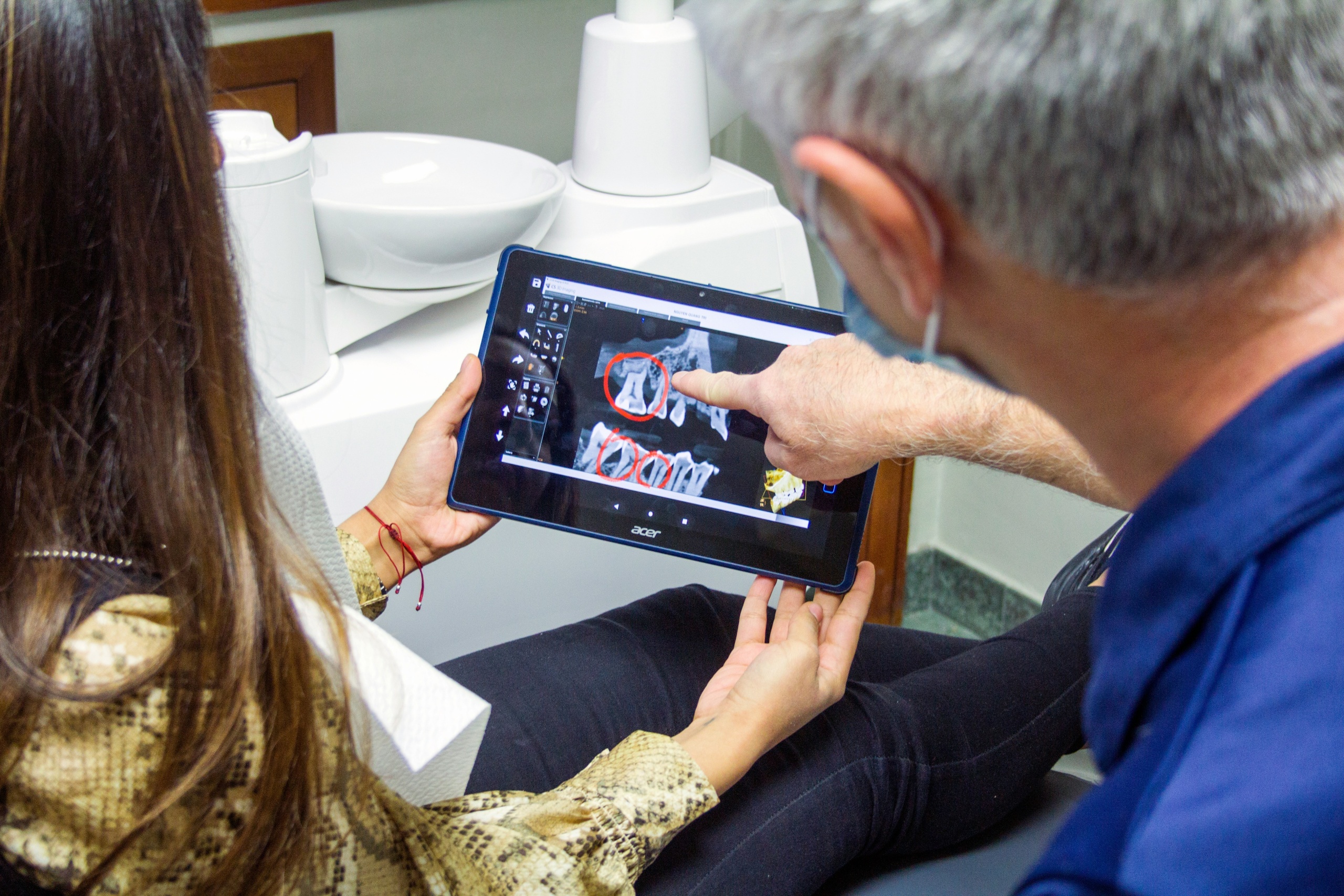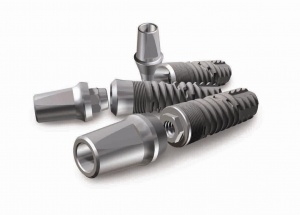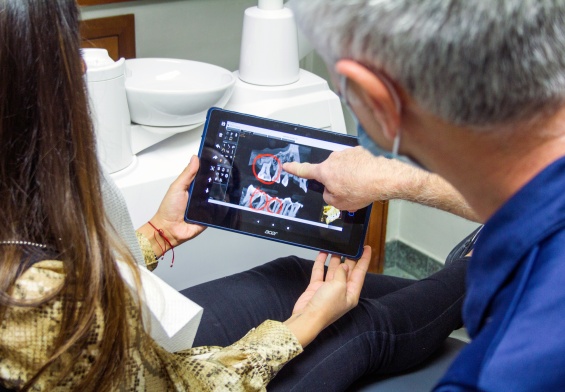The most effective TMJ treatment usually starts with conservative, non-invasive care. Common first steps include eating soft foods, applying heat or cold packs, practicing jaw stretches, and reducing stress. Dentists often recommend physical therapy to improve mobility and reduce pain. If that doesn’t work, a TMJ specialist in Clark, NJ may suggest medications, Botox injections, or, in rare cases, surgery.
What Clark, NJ Patients Should Know About TMJ Treatment
Ever get that constant pain, tightness, or even clicking in your jaw? It’s more common than you think. Millions of adults in the U.S. experience temporomandibular joint (TMJ) problems. These disorders, known as TMD, affect not just the jaw but also the head, neck, and even ears. The jaw’s structure is complex, which is why issues here can affect so many surrounding areas — learn more about the structure of the jaw.
Many patients begin searching online for the “most effective TMJ treatment.” The truth is, no single therapy works for everyone. Relief depends on your specific symptoms, underlying causes, and how long you’ve had the condition. If you’re looking for a TMJ specialist in Clark, NJ, this guide explains the best evidence-based options — from at-home care to advanced interventions — and why working with a TMJ specialist in Clark, NJ can make all the difference.
What Exactly Is TMJ Disorder and Why Does It Happen?
The temporomandibular joint works like a sliding hinge, connecting your jaw to your skull. Disorders can involve the muscles, cartilage disc, or joint itself. Common symptoms include jaw pain, headaches, clicking or popping, limited movement, and in some cases, ear ringing or dizziness.
The biggest challenge is that TMJ pain presents similarly to other conditions like migraines, ear infections, or neuropathic pain. This means accurate diagnosis is essential before starting any treatment plan. Many patients are surprised to learn that a dentist can treat TMJ directly or refer you to a specialist when needed.
TMJ disorders are multifactorial. They may stem from stress, parafunctional habits like clenching, systemic conditions, or even joint degeneration. Importantly, the outdated belief that a “bad bite” is the sole cause has been disproven. Conservative, multi-step care is the modern standard. A TMJ specialist in Clark, NJ can help patients identify whether their pain is muscular, joint-related, or due to overlapping conditions.
What At-Home TMJ Treatments Work Best for Clark, NJ Patients?
For many patients, conservative care is enough to bring lasting relief. Most TMJ issues are temporary and non-progressive, meaning they can often be managed at home. In fact, some of the best dentists in NJ are already adopting modern tools like AI and digital imaging to better track progress in cases like TMJ — here’s why the best dentists in NJ are embracing AI and 3D tech.
Self-Care Strategies for TMJ Relief:
- Soft diet – Focus on mashed potatoes, smoothies, soups, and scrambled eggs to limit strain. Avoid steak, bagels, or crunchy chips that need heavy chewing.
- Heat and cold therapy – Alternate ice packs (10 minutes at a time) with warm compresses to reduce inflammation and muscle tightness.
- Gentle jaw stretches – Controlled opening-and-closing movements or side-to-side glides, taught by a professional, can maintain mobility.
- Posture correction – Sit upright, keep monitors at eye level, and avoid leaning on your chin. Poor ergonomics is a major trigger of jaw stress.
- Mindful chewing – Chew food slowly, on both sides of your mouth, to distribute pressure evenly.
- Nighttime awareness – If you clench during sleep, a dentist may suggest a soft nightguard, even before a custom device is made.
- Stress management – Meditation, yoga, or journaling reduces subconscious grinding habits.
- Trigger identification – Keep a daily log to notice flare-ups tied to specific foods, stressful meetings, or sleep disruptions.
While these steps help many, some patients find that discomfort lingers. In such cases, a TMJ specialist in Clark, NJ can confirm whether extra treatment is necessary and design a stepwise plan.
The most effective at-home TMJ treatments include eating soft foods, applying heat or cold, practicing jaw stretches, correcting posture, avoiding gum chewing, and managing stress through relaxation. These simple steps often reduce pain and stiffness without medical intervention.
How a TMJ Specialist in Clark, NJ Treats Jaw Pain Without Surgery
Why Physical Therapy Is One of the Most Effective TMJ Treatments
The strongest evidence for non-invasive TMJ care comes from physical therapy. Studies show that manual therapy, stretching exercises, and jaw mobilization significantly improve pain, mobility, and patient quality of life. Patients reported decreased jaw stiffness and fewer headaches after completing structured programs.
This approach addresses muscular imbalances and joint mechanics. Unlike simple self-care, physical therapy provides guided, progressive techniques that retrain the jaw for long-term stability. Patients who work with a TMJ specialist in Clark, NJ often combine physical therapy with appliances for the best outcomes.
What Medications Help with TMJ Symptoms?
Medication may be part of the care plan, especially during painful flare-ups. Over-the-counter NSAIDs like ibuprofen are usually the first option. For more persistent pain, doctors may prescribe short-term muscle relaxants, antidepressants, or anti-anxiety medications.
But, medication alone rarely provides lasting results. The best outcomes occur when prescriptions are paired with physical therapy, oral appliances, or behavioral interventions. This multi-modal approach reduces dependence on pills while improving functional recovery. For some patients, restorative work may also be recommended, since dental health directly impacts jaw alignment — see what issues restorative dentistry in New Jersey can fix.
The most successful conservative TMJ treatments include physical therapy. Studies show that manual therapy, stretching, and jaw exercises improve mobility.
When Conservative TMJ Care Isn’t Enough: Other Treatments to Consider
When conservative measures fail, some patients explore newer or adjunctive therapies.
- Botox injections – Botox can relax overactive jaw muscles, providing relief for patients with severe clenching. Long-term results remain uncertain.
- Prolotherapy – This technique, injecting an irritant solution into the joint, may stimulate healing in hypermobile or dislocated joints. Evidence is limited, so careful patient selection is critical.
- Acupuncture and TENS therapy – These complementary treatments show some short-term benefit but lack large, long-term studies.
- Behavioral approaches – Biofeedback and cognitive-behavioral therapy (CBT) help patients manage jaw tension linked to stress.
Some patients turn to a TMJ specialist in Clark, NJ for these advanced treatments when conservative care offers only partial relief.
Is TMJ Surgery Really Necessary? What Patients Should Know
Surgery is rarely needed for TMJ disorders, and experts consistently advise caution. Only consider procedures that permanently change the jaw joint or bite as an absolute last resort. Exhaust all other options for more conservative treatment first.
Procedures that permanently change the jaw joint or bite should only be considered when all conservative treatments have failed.
- Arthrocentesis – This procedure uses fluid injection to wash out inflammation and scar tissue. It can temporarily improve mouth opening and reduce pain, but effects are often short-lived.
- Arthroscopy – Involves inserting a tiny camera and surgical tools into the joint. Surgeons can reposition discs or remove adhesions. Outcomes are moderately effective but not guaranteed.
- Open surgery – Reserved for severe joint destruction. There are no long-term safety studies, so it remains a last resort.
- TMJ implants – Implants replace part or all of the joint. They’re considered only for patients with frozen joints, congenital issues, or severe damage that hasn’t responded to other treatments. Past implant designs caused complications, so today’s devices are monitored carefully.
A TMJ specialist in Clark, NJ will usually recommend surgery only when every other treatment has failed, and even then, only after a second opinion.
Surgery for TMJ is rarely recommended. Procedures like arthrocentesis or arthroscopy may offer short-term relief, but irreversible surgeries or implants should only be used if all conservative options fail.
When Should You See a TMJ Specialist in Clark, NJ?
Self-care works for many, but some signs indicate that professional help is needed. Untreated TMJ pain can mimic or overlap with other conditions. That’s why an expert’s input is always needed.
Reasons to Seek a TMJ Specialist:
- Persistent pain – Jaw soreness that lasts more than 2–3 weeks despite self-care should be evaluated.
- Locking or restricted motion – If you can’t open your mouth fully or your jaw locks mid-movement, professional care is necessary.
- Painful clicking or popping – Occasional clicks are normal, but when paired with pain or limited movement, they indicate a disorder.
- Chronic headaches or ear issues – Many patients with TMJ pain also report migraines, earaches, or ringing in the ears.
- Difficulty chewing or speaking – Struggling with everyday functions is a clear sign your joint needs medical attention.
- Neck, shoulder, or back pain – TMJ issues can radiate to surrounding areas.
- Worn-down teeth – Grinding can cause visible damage, signaling the need for a custom appliance.
- Prior failed treatments – If OTC pain relievers or mouthguards haven’t helped, a specialist can provide more advanced options.
You should see a TMJ specialist if you have jaw pain lasting more than 2–3 weeks, jaw locking, painful clicking, chronic headaches or ear issues, difficulty chewing, or signs of teeth grinding. A specialist can confirm whether TMJ is the cause and recommend targeted treatment.
A TMJ specialist in Clark, NJ can check whether your symptoms are jaw-related or tied to another condition. That way, you get the right treatment without unnecessary procedures. Residents seeking TMJ treatment in Clark, NJ enjoy local expertise rooted in the latest research. Safety is always a top concern — especially since NJ’s top dentists maintain strict patient safety standards.
Finding the Right TMJ Specialist in Clark, NJ for Long-Term Relief
So, what’s the most effective TMJ treatment? Based on current evidence, the answer is clear: start conservatively. Self-care and physical therapy have the strongest support across many studies and clinical guidelines.
Advanced therapies like Botox or prolotherapy may help select patients, but evidence remains limited. Surgery and implants are options only for severe, unrelenting cases — and should always follow many professional opinions.
Ultimately, the best treatment is individualized. A TMJ specialist in Clark, NJ will identify whether your pain is caused by clenching, joint degeneration, or another condition, and then design a plan tailored to your needs. Choosing a trusted TMJ specialist ensures you’re getting care that follows the latest research and prioritizes long-term relief.
Resources
Garstka AA, Kozowska L, Kijak K, et al. Accurate Diagnosis and Treatment of Painful Temporomandibular Disorders: A Literature Review Supplemented by Own Clinical Experience. Pain Res Manag. 2023;2023:1002235. Published 2023 Jan 31. doi:10.1155/2023/1002235
https://www.fda.gov/medical-devices/dental-devices/temporomandibular-disorders-tmd-devices
https://www.nidcr.nih.gov/health-info/tmd
Putri ANK, Artha DA, Anugraha G et al. The effectiveness of physical therapy for temporomandibular disorder: A systematic review [version 2; peer review: 2 approved with reservations, 3 not approved]. F1000Research 2025, 13:1380 (https://doi.org/10.12688/f1000research.157532.2)
Wadhokar OC, Patil DS. Current Trends in the Management of Temporomandibular Joint Dysfunction: A Review. Cureus. 2022;14(9):e29314. Published 2022 Sep 19. doi:10.7759/cureus.29314




